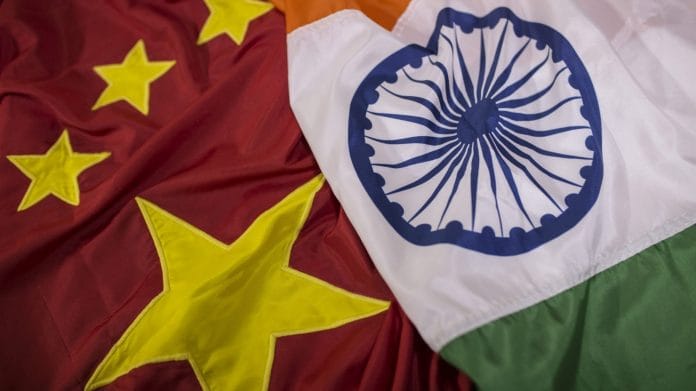New Delhi: India said Thursday that diplomatic dialogue could be the only way out of the stand-off with China in Ladakh, where disengagement efforts have failed to resolve tensions in the Depsang Plains and Pangong lake areas. However, New Delhi stressed that the effort should be mutual.
Both India and China have agreed to resolve all outstanding issues in an “expeditious manner” and in accordance with the existing agreements and protocols, Ministry of External Affairs (MEA) spokesperson Anurag Srivastava said Thursday at the weekly government briefing.
Citing External Affairs Minister S. Jaishankar’s interview this week to a media outlet, Srivastava said, “I would also refer you to the recent interview of External Affairs Minister wherein, referring to various past border incidents, he had noted that what was common was that all borders situations were resolved through diplomacy.”
The minister, Srivastava added, had further noted that “when it comes to finding a solution, this must be predicated on honouring all agreements and understandings, and not attempting to alter the status quo unilaterally”.
The MEA’s statement came days after Chief of Defence Staff (CDS) General Bipin Rawat said India has “military options” to deal with China on the issue of transgressions even as he made it clear that they will only be exercised if talks at the military and diplomatic levels fail.
Also Read: No progress made in India-China major general-level talks, all eyes now on diplomatic parleys
‘Agreed to resolve outstanding tensions’
New Delhi and Beijing have held several rounds of negotiations — at the diplomatic as well as the military level — to resolve border tensions that started with Chinese transgressions in Ladakh this May. The tensions even sparked clashes between the two sides at Galwan Valley on 15 June, which led to the death of 20 Indian soldiers and an unconfirmed number of fatalities for the People’s Liberation Army.
The last round of diplomatic talks took place on 20 August under the Working Mechanism for Consultation and Coordination (WMCC) on India-China border affairs, one of the bilateral frameworks instituted to resolve tensions.
The MEA had said after the talks that the sides had had a “candid and in-depth” exchange of views on the present situation at the LAC, and agreed to resolve outstanding issues in an “expeditious manner”.
At the briefing Thursday, Srivastava invoked the earlier statement and stated, “As I had conveyed earlier, complete disengagement requires re-deployment of troops by each side towards their regular posts on their respective sides of the LAC. It is natural that this can be done only through mutually agreed reciprocal actions. Thus it is important to bear in mind that achieving this requires agreed actions by both sides.
“In this context, in the last meeting of the WMCC, the two sides have agreed to resolve the outstanding issues in an expeditious manner and in accordance with the existing agreements and protocols.”
Also Read: India is losing the battle — 5 things Modi must do to rescue his image and China policy







56 millimeters is not talking about surgical strike
No one is talking about “Surgical strike“
The reference to military options was entirely avoidable.
It was stupid.